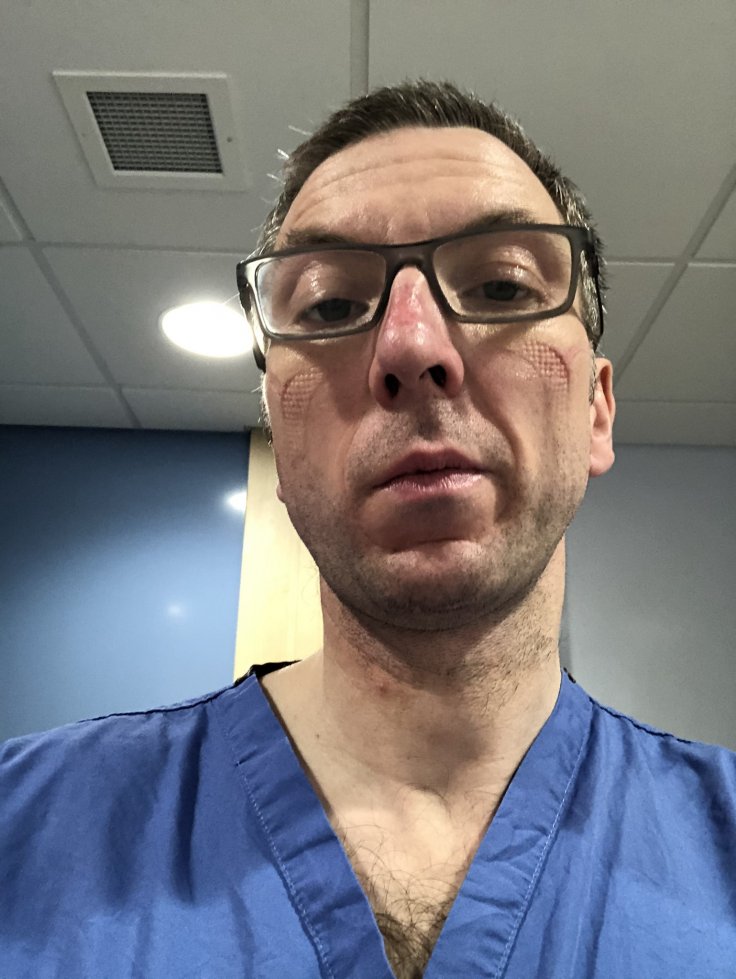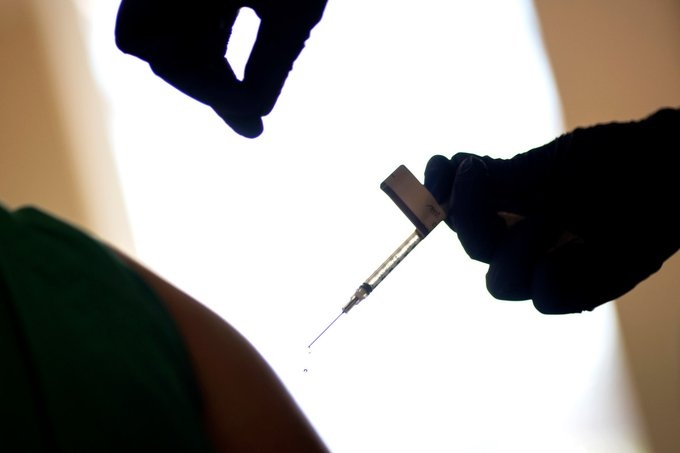Dr. Tom Fardon is an NHS doctor who has been battling the long-term effects of COVID-19. The healthcare professional who works at Ninewells hospital in Dundee is now urging people to follow lockdown rules and take the vaccine when their turn comes.
The NHS doctor looks after severe Coronavirus infected patients including those who are in their 30s and 40s. He tested positive for COVID-19 on April 13, 2020. Dr. Fardon noticed a ringing in one ear and then thought it would go away. But 10 months on, the 44-year-old healthy marathon runner has what is now known as "Long Covid" that is causing headaches and fatigue every day.

Trust the Vaccines
While dealing with horrific health issues, Dr. Fardon is now asking people to stick to health guidance and put their faith in vaccines.
When he found that he got COVID-19, the NHS doctor thought that he would have short-lived symptoms and could go be back to work within a couple of weeks. "But the reality was a month away from my job as a respiratory consultant in Ninewells Hospital and nine months of what we have now termed 'long Covid'," said Dr. Fardon.
He explained that around 10 percent of people who contracted the virus develop long-term symptoms, including tiredness, breathlessness, cough, chest pain, tinnitus, headaches and permanent loss of smell and taste. But according to the doctor, these effects may not be completely understood for years to come. "SARS-CoV-2, the virus responsible for Covid-19, is not going to disappear, so long-term solutions are required," he added.

Several infectious diseases have been eradicated since the introduction of mass vaccination by the World Health Organization, which is currently trying to find the origin of the SARS-CoV-2 in China.
Since the beginning of the pandemic, vaccine development for COVID-19 has been the top priority for the scientific community. Thanks to joint collaboration, vaccine research and its development has accelerated, said Dr. Fardon.
Some people are worried that the vaccines haven't been tested thoroughly enough, the processes have been rushed and they are not safe. "But the science that underpins how these vaccines work has been extensively researched – they have been in development for many years and have been tested thoroughly in large scale international trials," added the NHS doctor.
Over the past few months, anti-vaxxers and conspiracy theorists have spread several claims to stop people from receiving vaccine shots. But Dr. Fardon said neither Pfizer-BioNTech nor the Oxford-AstraZeneca can cause COVID-19 as there is no virus in the injections. The NHS doctor also explained that none of the vaccines contain animal products or stem cells. "They are preservative, sodium, potassium, and mercury-free; they have been tested in tens of thousands of people with mild side effects comparable to other vaccines; neither can affect your DNA in any way," he added.
He said that there are people who are at higher risk of developing more severe COVID-19 if they get the Coronavirus infection. But, this group of people will not have more severe side effects due to the vaccination, assured the doctor and added that they will be on the vaccine priority list. "Vaccines work slightly less well in people taking drugs to suppress the immune system but they still work," he said.

How Does It Work?
The first dose of a vaccine will provide protection against the Coronavirus-caused disease after the formation of antibodies, almost after two to three weeks of injection. The second shot will work as a booster to increase the response and provide longer protection against the disease, explained the doctor.
"Given my personal experience of the virus, I am particularly keen to see high vaccine uptake among the population," Dr. Fardon said.
"The best way to reduce the numbers of cases of infections and reduce the restrictions needed to keep us safe is to embrace the vaccination. When you are invited to get your vaccination, I hope you'll roll up your sleeve and receive it," said the NHS doctor.









